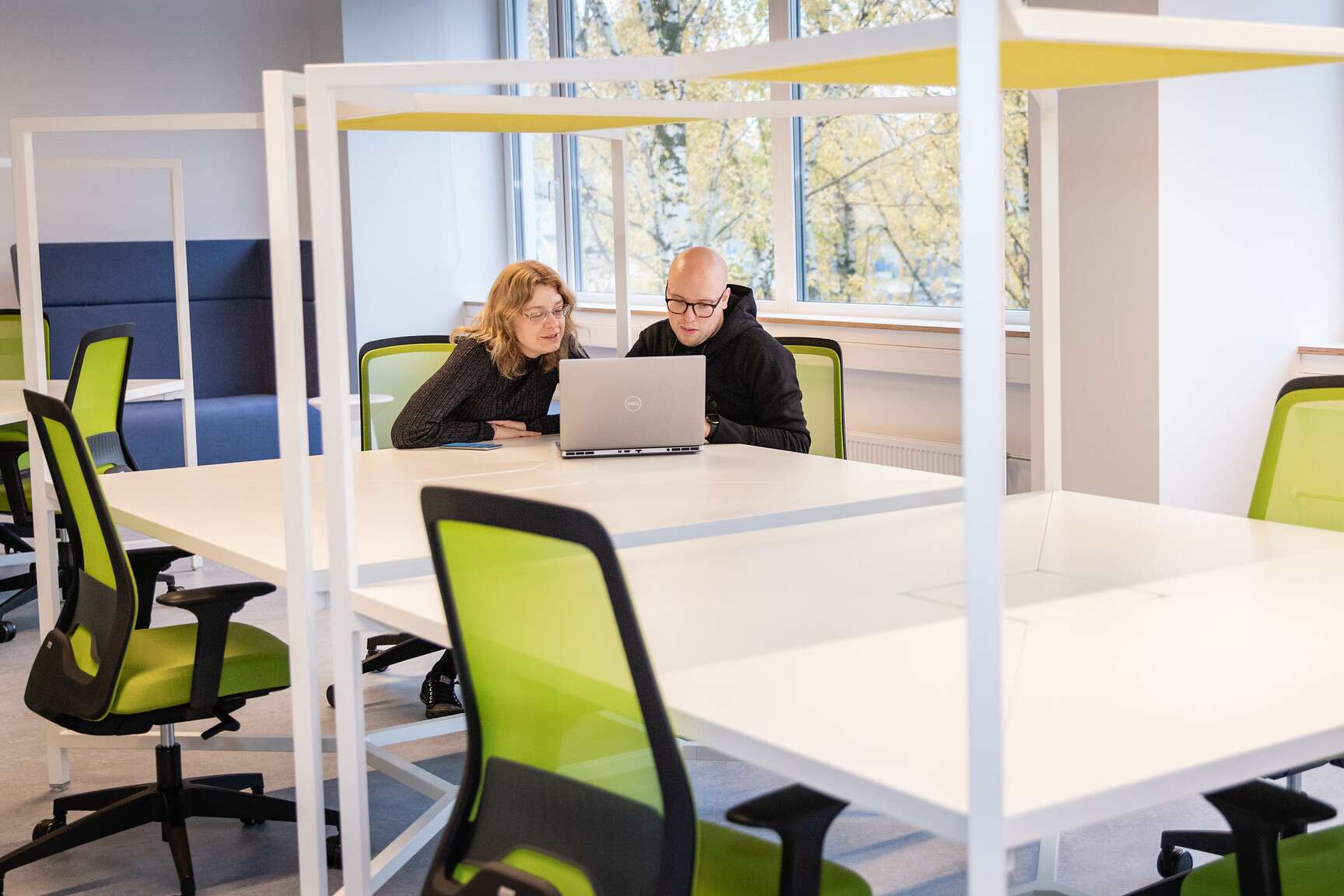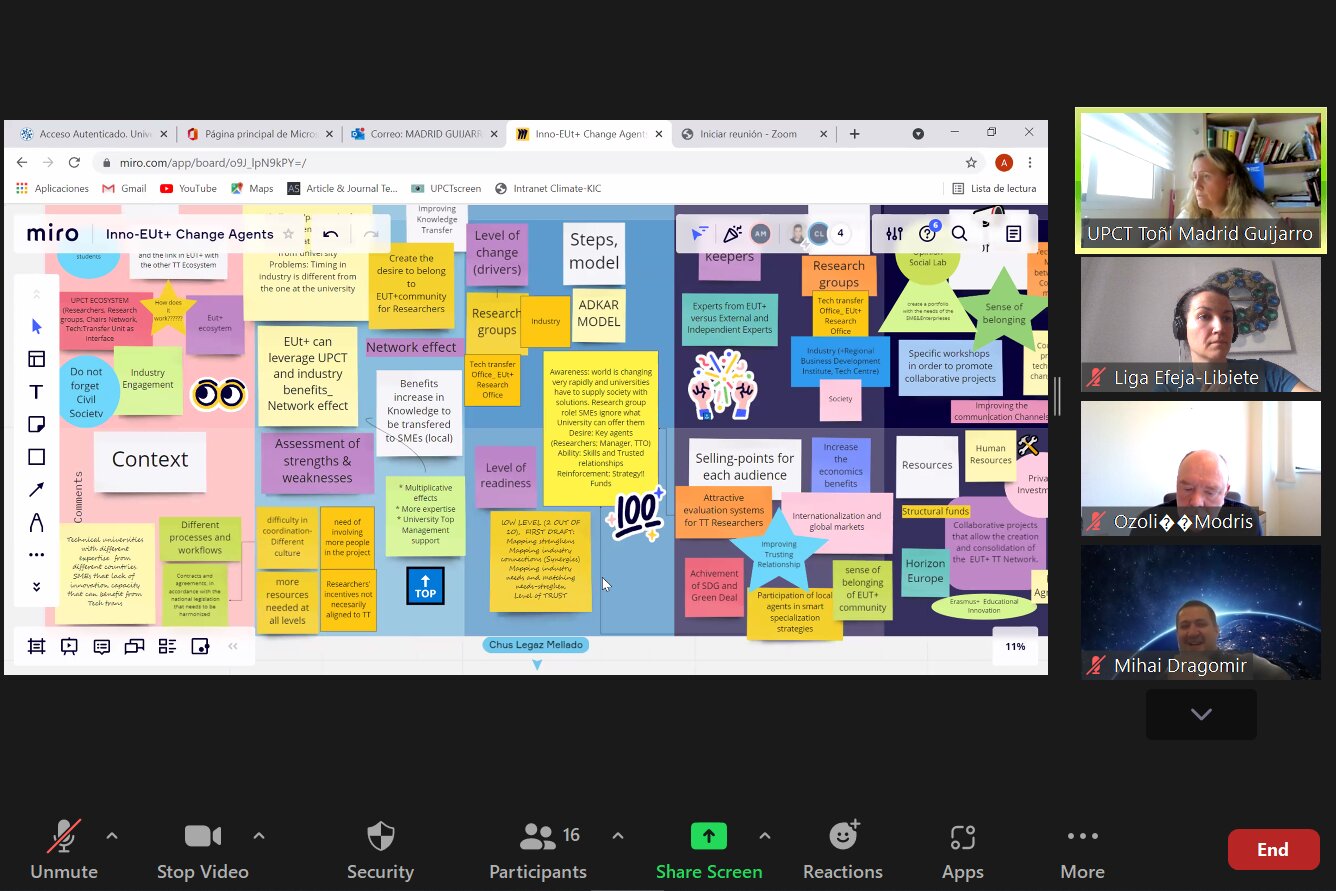

Riga Technical University: Training The Change Agents
As the good old saying goes, be the change you want to see in this world. This is why we took on the challenge of training the change agents. The training component is one of the crucial parts of the Inno-EUt+ project, and the aim of it was to increase the overall innovation capacity of higher education institutions (HEIs). This objective was pursued during the training programme conducted by the Riga Technical University (RTU) Science and Innovation Centre.
Throughout this programme, the focus remained on the role of staff, both academic and non-academic, as individuals in achieving lasting change and making an impact on the institution. People that took part in this course came from several high-level European universities.
Two online training sessions were held at RTU as part of the Inno-EUt+ project. In 2021, 29 individuals participated in the training, while in 2022, 23 participants sought to expand their horizons through four thematic workshops comprising each training session. These workshops covered topics such as change management and innovation in higher education, systems thinking and mapping, challenge definition, and theory of change.
The main emphasis was placed on the practical application of these tools, which were provided to the participants. Moreover, throughout the workshops, each participant worked towards developing a context-specific action plan and received substantial feedback from experts with working experience at a European level. After reviewing these action plans, the experts concluded that “all proposals are well structured and reasoned, coming from curious and proactive people, and interested in improving their working places, conditions, and procedures.”
One of the core objectives of this training was to provide inspiration and new perspectives in addition to practical tools. The action plans created during the training enabled participants to take specific steps in the short to medium term with a clear impact goal in mind. In this process, participants could focus solely on their roles and responsibilities or take a broader perspective, considering specific study courses, working groups, or even entire departments.
After implementing the training, the participants were asked to provide feedback and testimonials to measure its impact. We were eager to witness tangible change following such training, which prompted us to inquire if the participants had introduced and executed any new initiatives in their institutions after completing the course. Although some participants felt that certain groundwork still needed to be laid before implementing any change, there were responses that highlighted the fundamental value of this training programme. For instance, one participant initiated a new entrepreneurial programme, while others expressed an overall readiness to embrace new changes. As one participant candidly stated, “The training expanded my knowledge of change management and innovation possibilities in higher education.”
